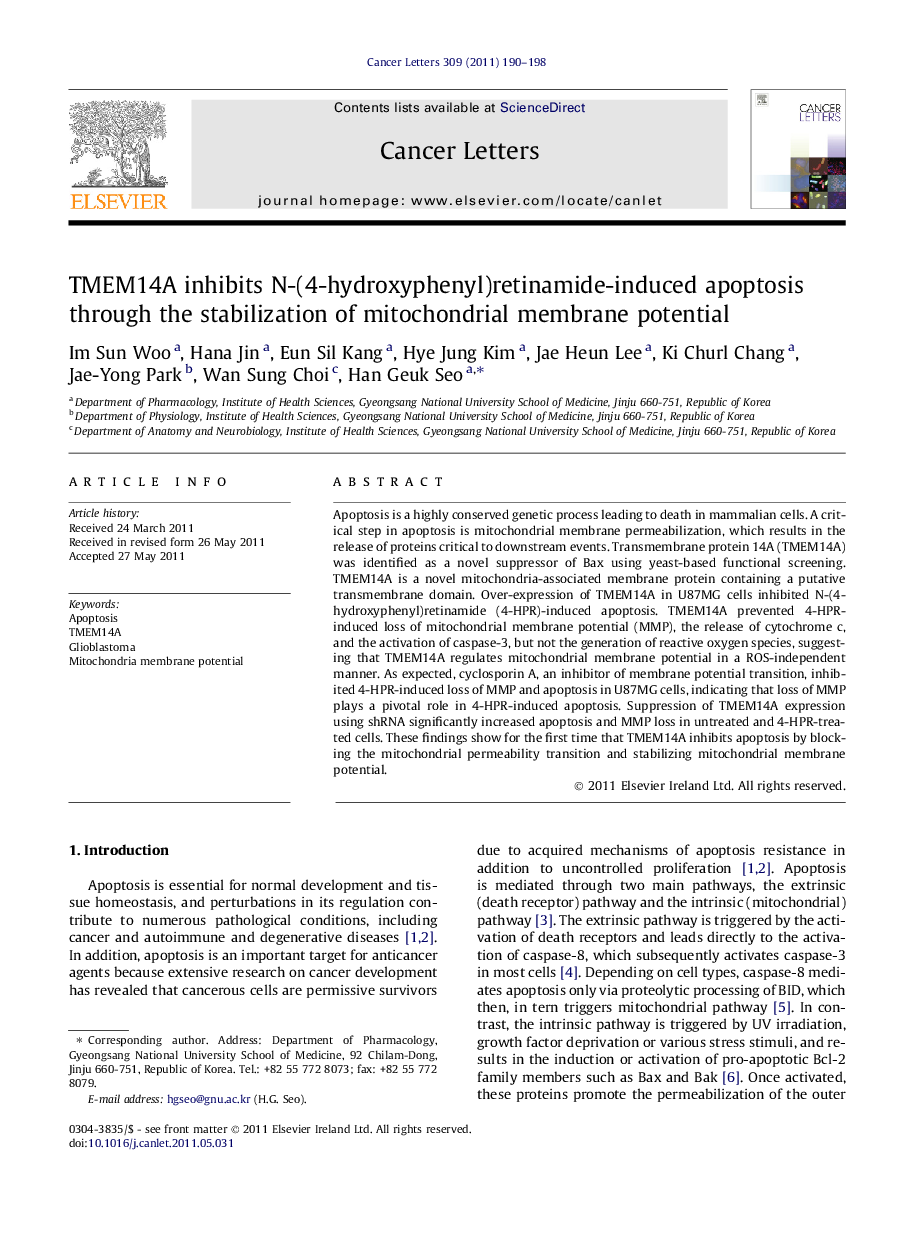| Article ID | Journal | Published Year | Pages | File Type |
|---|---|---|---|---|
| 2113688 | Cancer Letters | 2011 | 9 Pages |
Apoptosis is a highly conserved genetic process leading to death in mammalian cells. A critical step in apoptosis is mitochondrial membrane permeabilization, which results in the release of proteins critical to downstream events. Transmembrane protein 14A (TMEM14A) was identified as a novel suppressor of Bax using yeast-based functional screening. TMEM14A is a novel mitochondria-associated membrane protein containing a putative transmembrane domain. Over-expression of TMEM14A in U87MG cells inhibited N-(4-hydroxyphenyl)retinamide (4-HPR)-induced apoptosis. TMEM14A prevented 4-HPR-induced loss of mitochondrial membrane potential (MMP), the release of cytochrome c, and the activation of caspase-3, but not the generation of reactive oxygen species, suggesting that TMEM14A regulates mitochondrial membrane potential in a ROS-independent manner. As expected, cyclosporin A, an inhibitor of membrane potential transition, inhibited 4-HPR-induced loss of MMP and apoptosis in U87MG cells, indicating that loss of MMP plays a pivotal role in 4-HPR-induced apoptosis. Suppression of TMEM14A expression using shRNA significantly increased apoptosis and MMP loss in untreated and 4-HPR-treated cells. These findings show for the first time that TMEM14A inhibits apoptosis by blocking the mitochondrial permeability transition and stabilizing mitochondrial membrane potential.
► TMEM14A was identified as a novel suppressor of Bax by yeast-based functional screening. ► TMEM14A was mainly expressed in the membrane fraction of mitochondria and endoplasmic reticulum. ► Over-expression or knock-down of TMEM14A modulated cellular response to 4-HPR through the regulation of MMP.
